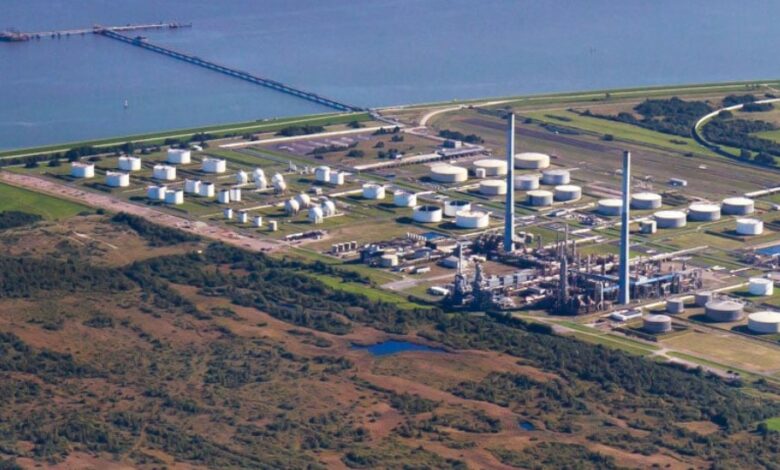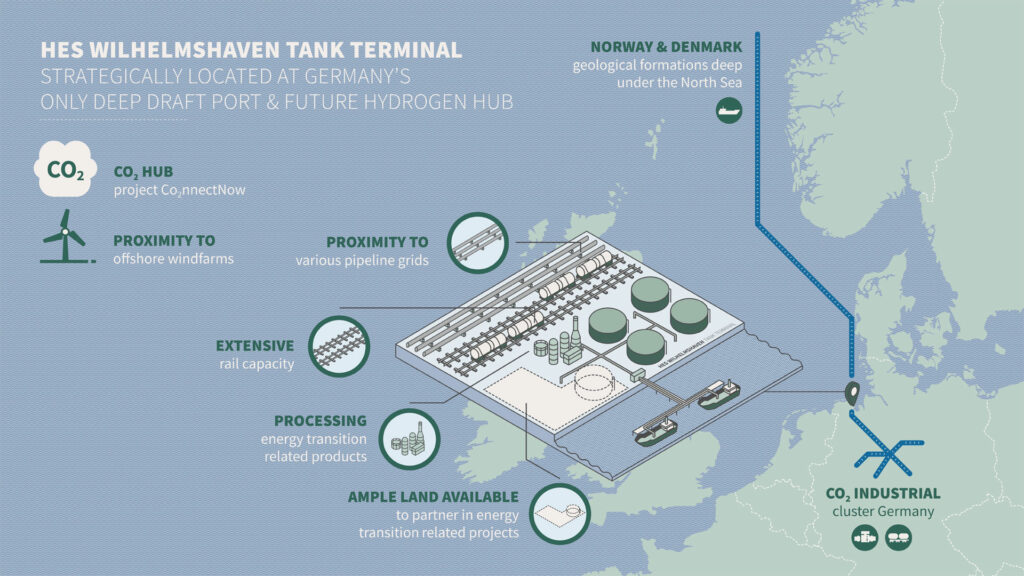Wintershall Dea and HES unveil Wilhelmshaven CO2 hub scheme

European oil and gas firm Wintershall Dea has teamed up with HES Wilhelmshaven Tank Terminal to jointly develop a CO2 hub at Germany’s largest independent liquid bulk terminal in the Port of Wilhelmshaven.
The project envisions capturing CO2 from German industrial sites and transporting the gas to the planned hub, dubbed CO2nnectNow, from which it would be first shipped and later transported via pipeline from Germany’s only deepwater port to geological formations in the Norwegian and Danish North Sea for permanent storage.
The partners have launched a study to determine the feasibility of the project, with its results expected in 2023.
“Our Wilhelmshaven Tank Terminal has an ambition to play a central role in Northern Germany’s energy transition. The terminal is very well positioned to do so, with ample land available for development, and extensive jetty and rail capacity. Collaboration will be key, if we are to be successful in making a meaningful contribution to the region’s decarbonisation goals, in line with the European Green Deal,” added Martijn Fock, business development and commercial director at HES International.
In May 2022, Wintershall Dea revealed a project called BlueHyNow to produce large quantities of hydrogen from natural gas in Wilhelmshaven. It is expected that the CO2 generated by the project will also be captured and collected at CO2nnectNow. The company also recently announced a partnership with Equinor aiming to connect Germany and Norway via a 900 km CO2 pipeline, with an annual capacity of up to 40m tonnes by 2032.
“Only with CCS can Germany achieve its climate targets. The North Sea, especially Norway and Denmark, offers enormous potential and Wilhelmshaven is perfectly located in Northern Germany,” said Klaus Langemann, senior vice president of carbon management and hydrogen at Wintershall Dea.
Studies by the Öko-Institut and Agora Energiewende have found that CCS will be a key technology in enabling Germany to reduce its emissions from industry and agriculture. Wintershall Dea has set a goal to decrease emissions by applying CCS and low-carbon hydrogen technologies, potentially building up a business abating 20m to 30m tonnes of CO2 per year by 2040.
“CO2nnectNow is planned to become a crucial building block for achieving these goals if, from 2028 onwards, more than 10m tonnes of CO2 are gradually exported annually from Wilhelmshaven to safe offshore deposits,” the company said.

